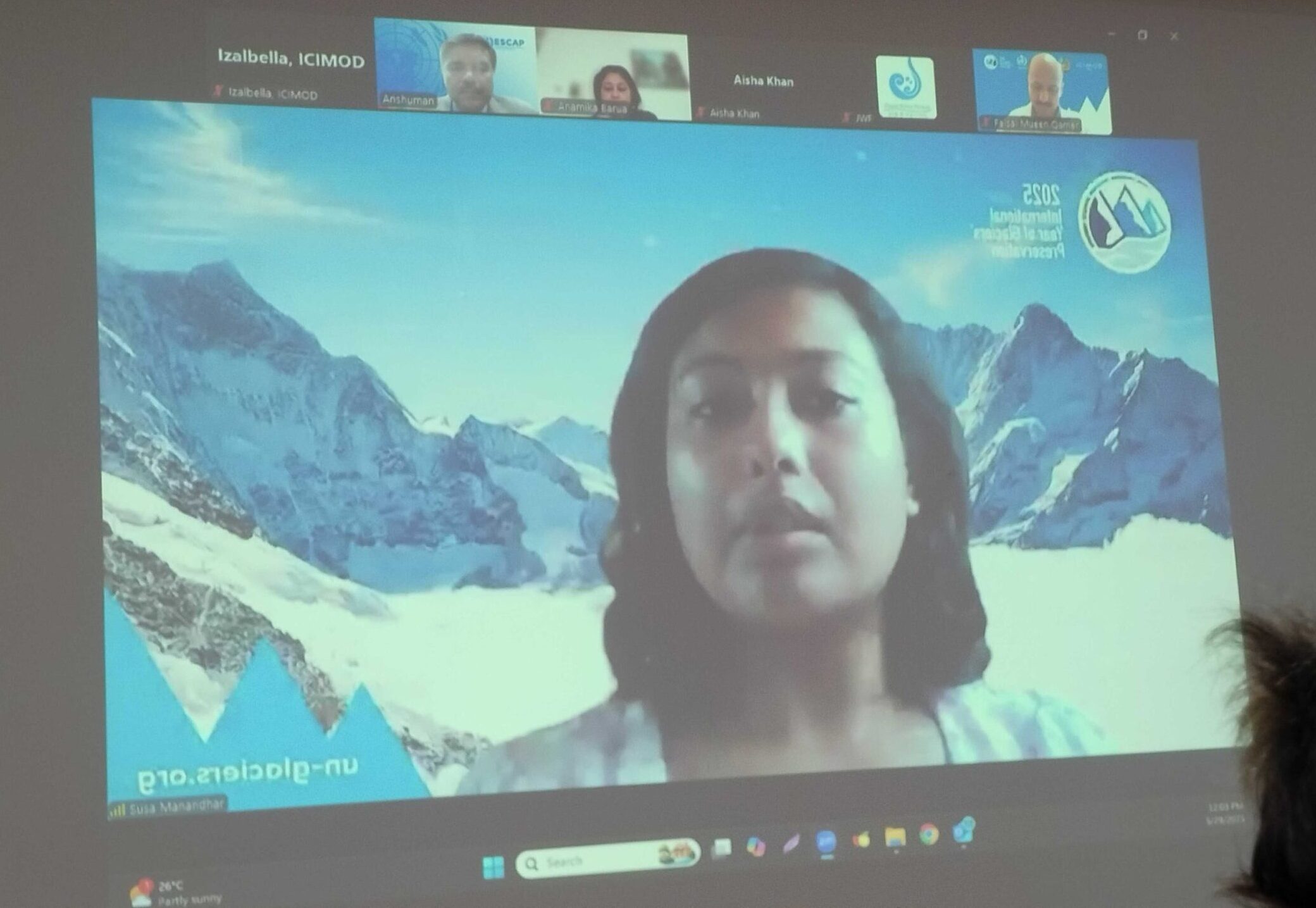The Small Earth Nepal (SEN) organized a seminar on “Challenges of Sustainable Groundwater Development” in collaboration with the Fulbright Specialist Program, Asia Pacific Network for Global Change Research (APN), University of Rhode Island (URI), Tribhuvan University Alumni Association Nepal (TUAAN), Centre for Hydrology of University of Saskatchewan (C4H-Usask) , KVWSMB and Center of Research for Environment, Energy and Water (CREEW). The seminar was held on 18 August 2019 at Hotel Summit, Kathmandu which brought together 72 participants from various relevant organizations to discuss on the overarching theme of groundwater resources.
The objectives of the seminar were to highlight the importance of groundwater, the grave reality of groundwater mining, and potential options for sustainable use and management of groundwater. In this context, when the groundwater pollution is increasing and groundwater tables are declining due to massive extraction of groundwater through unregulated bore holes, such events play a crucial role in sensitizing policy makers and the relevant stakeholders towards undertaking urgent actions.
The seminar was incepted with the welcome speech by Mr. Dhiraj Pradhananga, President of SEN and a researcher at C4H-Usask. He announced commencing a groundwater data portal to be launched by SEN during 2020 Nepal National Water and Weather Week (NNWWW) and invited collaboration for the same.
The first keynote presentation was delivered by Prof. Thomas Boving, URI, on the topic “Unconventional Water Treatment Technologies for Decentralized Applications”. Prof. Boving highlighted the traditional knowledge of water treatment technologies existing in Nepal, which at present is being lost or replaced by public water service that are insufficient for meeting household demand with both quality and quantity being issues of great concern. Briefly, Prof. Boving shed light on the applicability of wastewater treatment in context to Nepal. He recommended the application of Riverbank Filtration (RBF) for plains i.e. Terai area of Nepal, whereas floating wetland for lakes like Phewa Lake in Pokhara and artificial wetland in the Kathmandu Valley for the treatment of wastewater in Nepal.
The second keynote presenter, Mr. Pratap Singh Tater, Senior Hydrogeologist from Nepal Hydrogeological Association (NHA) shared his experience on groundwater exploitation, exploration and management for sustainable use in Nepal. Lack of database on groundwater extraction, education, lack of research, and formulation stringent regulations are few of his recommendations.
Prof. Suresh Raj Chalise, advisor of SEN, and chair of the opening session, on his closing remarks reiterated on the broader collaboration with academia, experts, development partner, state and non state actors in addressing the groundwater issues and challenges.
The panel discussion was conducted on the title “Groundwater: Constraints and Ways Out”, which was moderated by Dr. Madan Lall Shrestha, advisor to SEN and Academician to Nepal Academy of Science and Technology (NAST). The panelists were: (1) Dr. Sanjiv Bickram Rana, Executive Director, KVWSMB, (2) Mr. Andy Prakash Bhatta, President, Nepal Hydrogeological Association (NHA) (3), Mr. Kabindra Pudasaini, Technical Lead, Wash Programme, WaterAid Nepal and (4) Ms. Anisha Karna, Chief Operating Officer, SmartPaani. The panellists in the discussion urged for immediate actions towards addressing the increasing groundwater pollution and the looming water scarcity in the urban centres of Nepal and provided suggestions towards addressing these challenges based on their experience and work portfolios. The participants of the seminar reiterated the issues related to groundwater resource depletion, drying of wells and springs along with increasing groundwater pollution and thus suggested on the promotion and installation of rainwater harvesting (RWH), conservation of tradition water resources like springs, ponds and wells mobilizing community through formulation and implementation of enabling policy framework.
Summing up at the end of the panel discussion, Dr. Shrestha emphasized on the need of proper research on groundwater resources. The monitoring and regulating mechanism for groundwater resources, he added, must be strengthened and institutionalized. Dr. Shrestha underlined the importance of data and research in this field for fact-based findings, those could be shared through the data portal.
Mr. Pradhananga closed the seminar requesting collaboration to the research on the sustainable groundwater development in Nepal. He expressed his gratitude to the collaborators, the session chairs, the keynote presenters, the panelists, and the participants for their presence and cooperation throughout the seminar.




